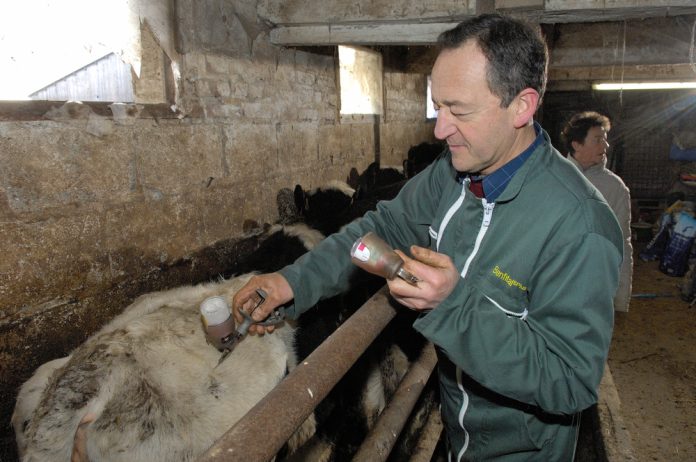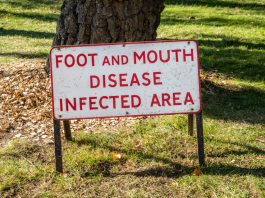The UK’s Chief Veterinary Officer has announced that we are now in the seasonally vector low period for bluetongue virus.
Due to a decrease in temperature, midge activity is lower, with midges not actively feeding, meaning there is a very low risk of new bluetongue virus infections from biting midges.
As a result, some restrictions currently in place to mitigate the spread of the disease will be eased.
These include removing the requirements for post-movement testing of animals out of the Restricted Zone, using insecticide on transport vehicles, and sending animals moving outside of the Restricted Zone for slaughter to designated abattoirs.
As a precautionary measure, the Restricted Zone currently in place across affected regions along the east and south coast of England will remain whilst discussions with industry continue on the next steps to combat bluetongue virus.
What is bluetongue virus and how dangerous is it?
Bluetongue virus, which affects sheep, cattle and other ruminants, is a viral disease spread by biting midges, which affects all ruminants.
Some breeds of sheep are particularly susceptible to bluetongue infection and show severe clinical signs of the virus. Disease severity varies with the strain of the virus and by the individual animal, breed, and species.
Sheep are more likely to show obvious clinical signs of bluetongue than cattle if they become infected with bluetongue virus. Signs of bluetongue in sheep include:
- Ulcers or sores in the mouth and nose
- Discharge from the eyes or drooling from the mouth
- Swelling of the lips, tongue, head and neck and the coronary band (where the skin of the leg meets the horn of the foot)
Cattle and deer are less likely to show clinical signs but are thought to be important ‘reservoirs’ of the virus.
Since November 2023, the UK has recorded nearly 200 cases, the majority of them being the strain ‘BTV-3’, which is a relatively new strain first reported in the Netherlands.
Due to its segmented genome, bluetongue can reassort, swapping genome segments, when two BTV strains replicate within the same cell. This can give rise to new strains, which can have different characteristics and potential virulence, which may make current vaccines ineffective.
It does not affect people or food safety, but outbreaks can result in prolonged animal movement and trade restrictions.
Farmers must still remain vigilant
As a precautionary measure, the restricted zone currently in place across affected regions along the east and south coast of England will remain.
All animals moving out of the zone will still require a pre-movement test unless going directly to slaughter or a dedicated slaughter market.
UK Chief Veterinary Officer Christine Middlemiss explained: “We are now in a seasonally vector low period when midge activity is lower with a significantly reduced risk of bluetongue virus from biting midges, meaning we can ease some of the measures in place to mitigate disease spread.”
She added: “However, I would urge farmers to remain vigilant and report any livestock they suspect have the disease to APHA.
“We are committed to working with everyone affected and will continue to keep the Restricted Zone under review.”
Farmers should continue to monitor their animals frequently for clinical signs and make sure their animals and land are registered with APHA so that animals can be located in the event of an outbreak.
Bluetongue virus is a notifiable disease. Suspicion of the disease in animals in England must be reported to the Animal and Plant Health Agency on 03000 200 301.





